On the afternoon of September 16, 2023, the "Third Joint Forum of Young Scholars" and the fifth session of the "TIME·Frontier" Salon ,focusing on research hot spots in big data and artificial intelligence, were successfully held. The event was jointly organized by the School of Computer Science and Technology of Huazhong University of Science and Technology (HUST CS) and the School of Computing of the National University of Singapore, along with other world-renowned universities, and was conducted online via Zoom.
During the opening ceremony, Xuanhua Shi, Vice Dean of the School of Computer Science and Technology, warmly welcomed the participation of all young scholars and top talents in this Youth Forum. On the occasion of the 50th anniversary of the establishment of the Computer Science and Technology program, the joint forum of young scholars aimed to deepen diverse collaborations among top universities. The platform was hoped to benefit more scholars and students by facilitating academic exchanges, fostering mutual understanding, and inspiring innovative ideas.
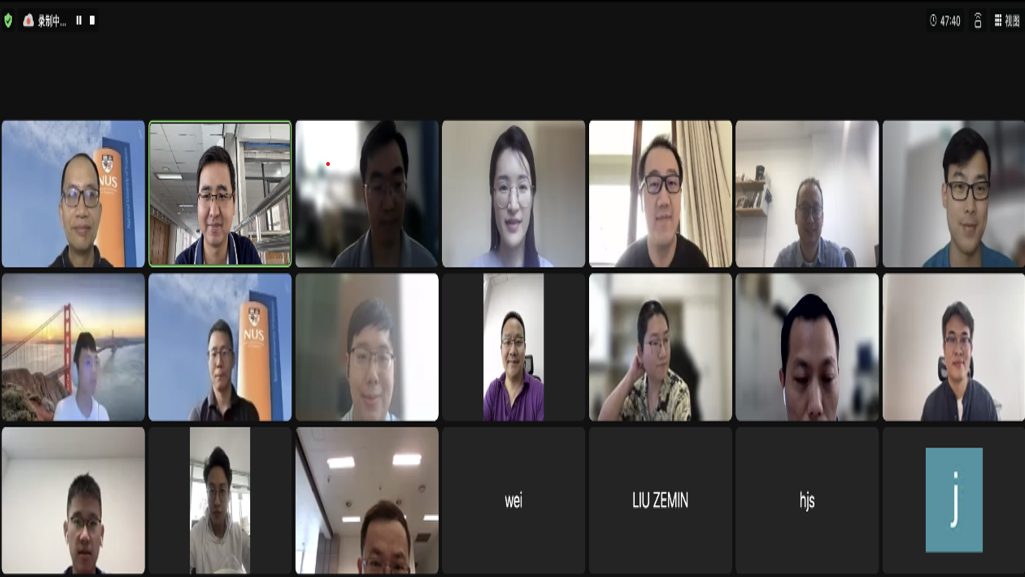
In the presentation session,, Bingsheng He, Vice Dean of the School of Computing at the National University of Singapore, first congratulated HUST CS on its 50th anniversary of Computer Science and Technology Discipline Development. He then made a detailed and inspiring report on the development of big data and AI in the next decade. The report covered the historical background of big data and AI, discussed key trends, challenges, and prospects in the field for the next ten years, and introduced several emerging research directions. Professor Ho also raised thought-provoking questions, encouraging participants to engage in more divergent thinking about the future of big data and AI.

Assistant Professor Chi Zhou from the Hong Kong Baptist University shared the latest achievements of her team in a presentation titled "Tackling Cold Starts in Serverless Computing using Multi-layer Container Reuse." The presentation addressed the issue of cold start latency that limits program performance in serverless computing. It creatively proposed a solution to reuse containers at multiple levels to increase heat capacity.
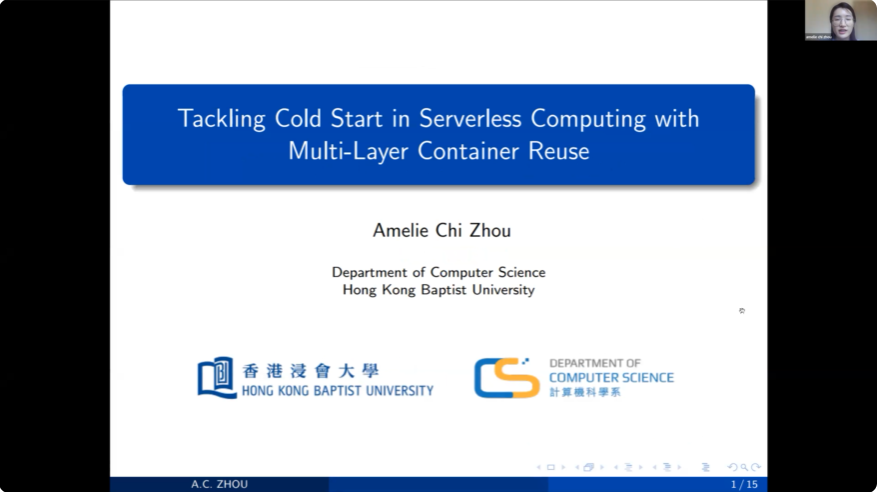
Research Assistant Professor Yao Chen from National University of Singapore delivered a lecture on "LightRW: FPGA Accelerated Graph Dynamic Random Walk." He presented an accelerated unit for graph data random walks, which can optimize various systems as an algorithm module. The experimental results demonstrated advantages when compared to experiments conducted with the best CPU currently available.
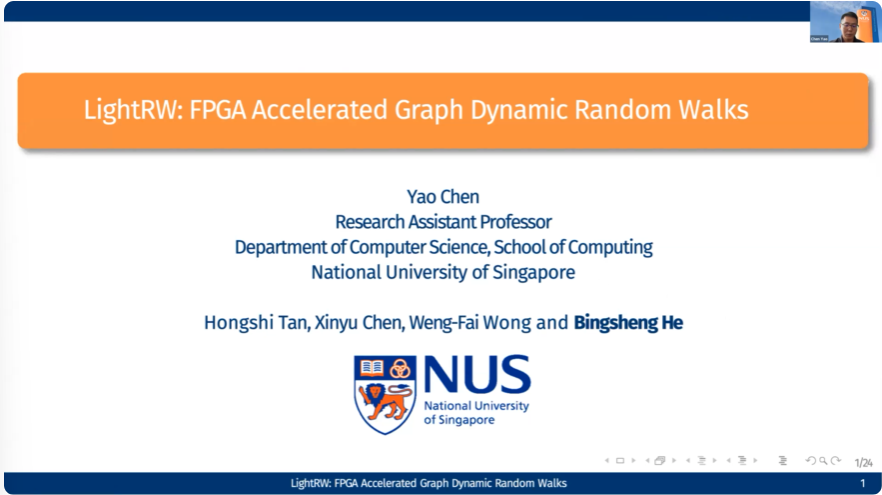
Associate Professor Shixuan Sun, from Shanghai Jiao Tong University, provided a detailed introduction to the graph random walk engine designed and developed by his team. He emphasized the extensive applications of graph data in everyday life and the challenges faced during practical usage. Based on this background, he introduced the concept of graph random walk and presented the design principles and practical effects of his team's graph random walk engine.
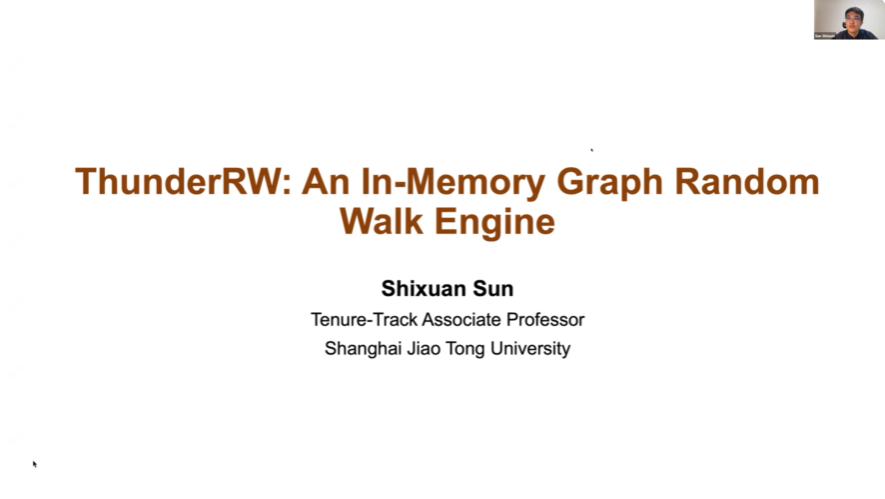
Postdoctoral researcher Jin Zhao from Zhejiang Lab presented the latest achievements of his team in the field of dynamic graph computing, under the topic "High-performance Graph Processing over Streaming Graphs." The presentation covered the background and research progress of dynamic graph computing, as well as the team's proposed optimization models for dynamic and static graph computing and a dynamic graph processing accelerator based on graph structure awareness. The team's work reduced the computational and memory access costs during streaming graph processing.
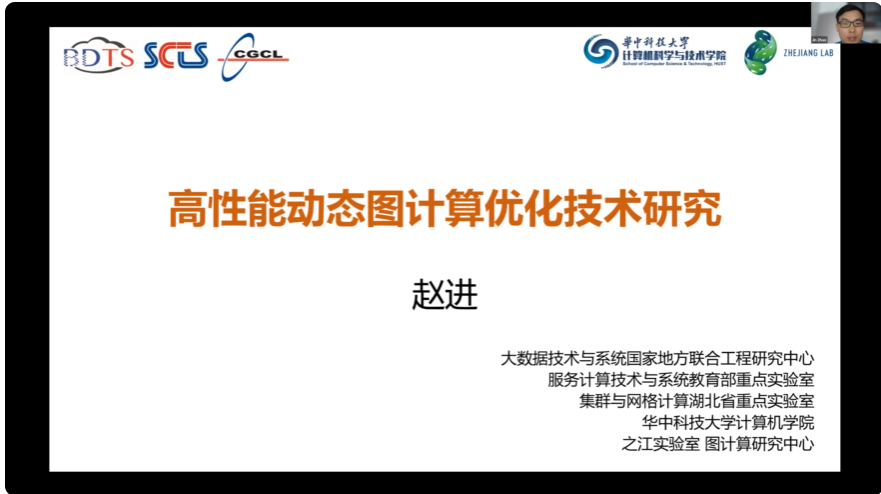
Postdoctoral researcher Pengcheng Yao from the Graph Computing Center at Zhejiang Lab delivered a presentation on "Domain-Specific Accelerators for Graph Computing." He introduced the background of graph computing based on sparse computation and subsequently discussed dedicated and general accelerators for graph computing. Finally, he summarized and provided an outlook on the development of the graph computing field.
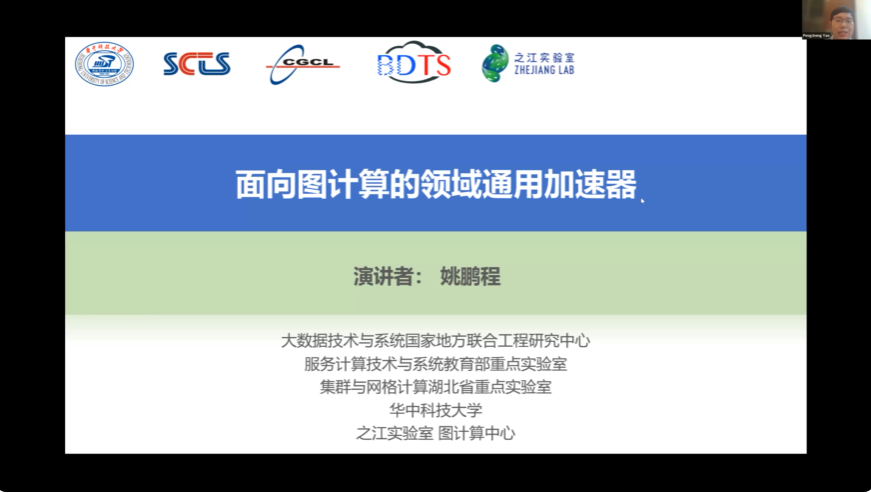
Xuntao Cheng, Chief Scientist and Senior Technical Expert of NebulaGraph, presented on the topic of "Graph Database for Domain-Specific LLM Applications". He introduced the design background of large models in the vertical domain, the application scenarios of a graph database and its key technical progress in different scenarios for complex industry rules. By using a variety of examples, Dr. Cheng vividly explained the advantages and application scenarios of large models and finally introduced other relevant ongoing research within his team.
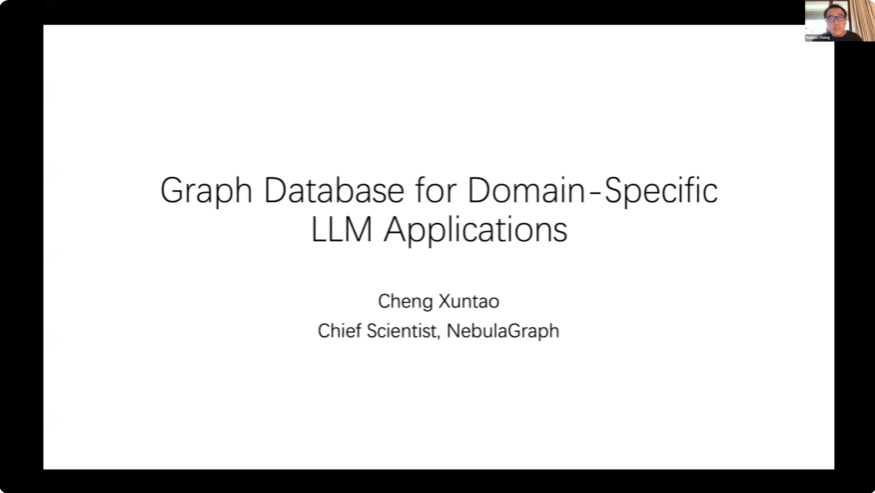
Assistant Professor Shuhao Zhang from the Singapore University of Technology and Design delivered a presentation titled "An In-depth Empirical Study of Data Stream Clustering." He introduced his team's recent research on four critical design aspects of Data Stream Clustering (DSC) and developed a new algorithm named Benne. Compared to state-of-the-art algorithms, Benne can be adjusted to achieve better precision or efficiency.
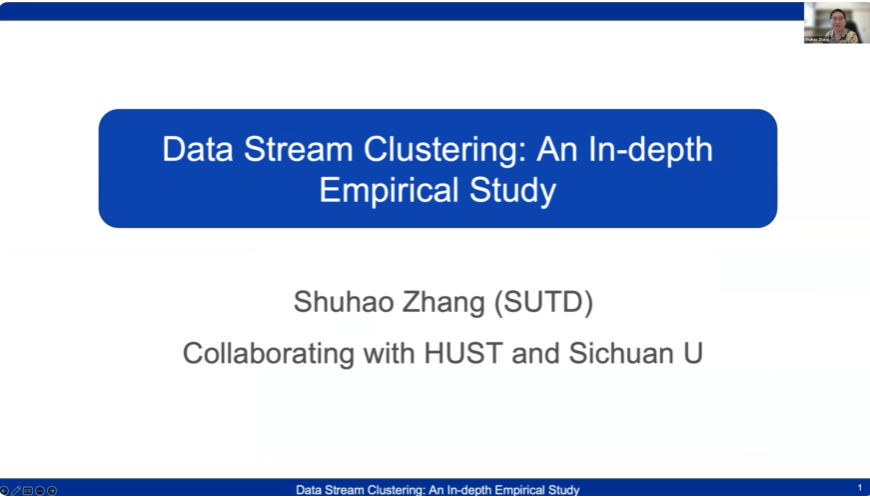
Finally, Professor Ligang He from the Department of Computer Science at University of Warwick in the United Kingdom moderated a discussion on the challenges faced by graph data in real-world applications, the integration of big data models in academia and industry, the utilization and effectiveness of the research mentioned in the lectures in multimodal data scenarios, and the feasibility and worthiness of large-scale graph models. Participants engaged in open discussions on these topics.
This joint symposium focused on hot research directions such as graph algorithms and large-scale models in the fields of big data and artificial intelligence. It promoted academic exchanges between young scholars and students, broadened the international perspective of faculty and students, and laid a solid foundation for deep collaborations among universities.
